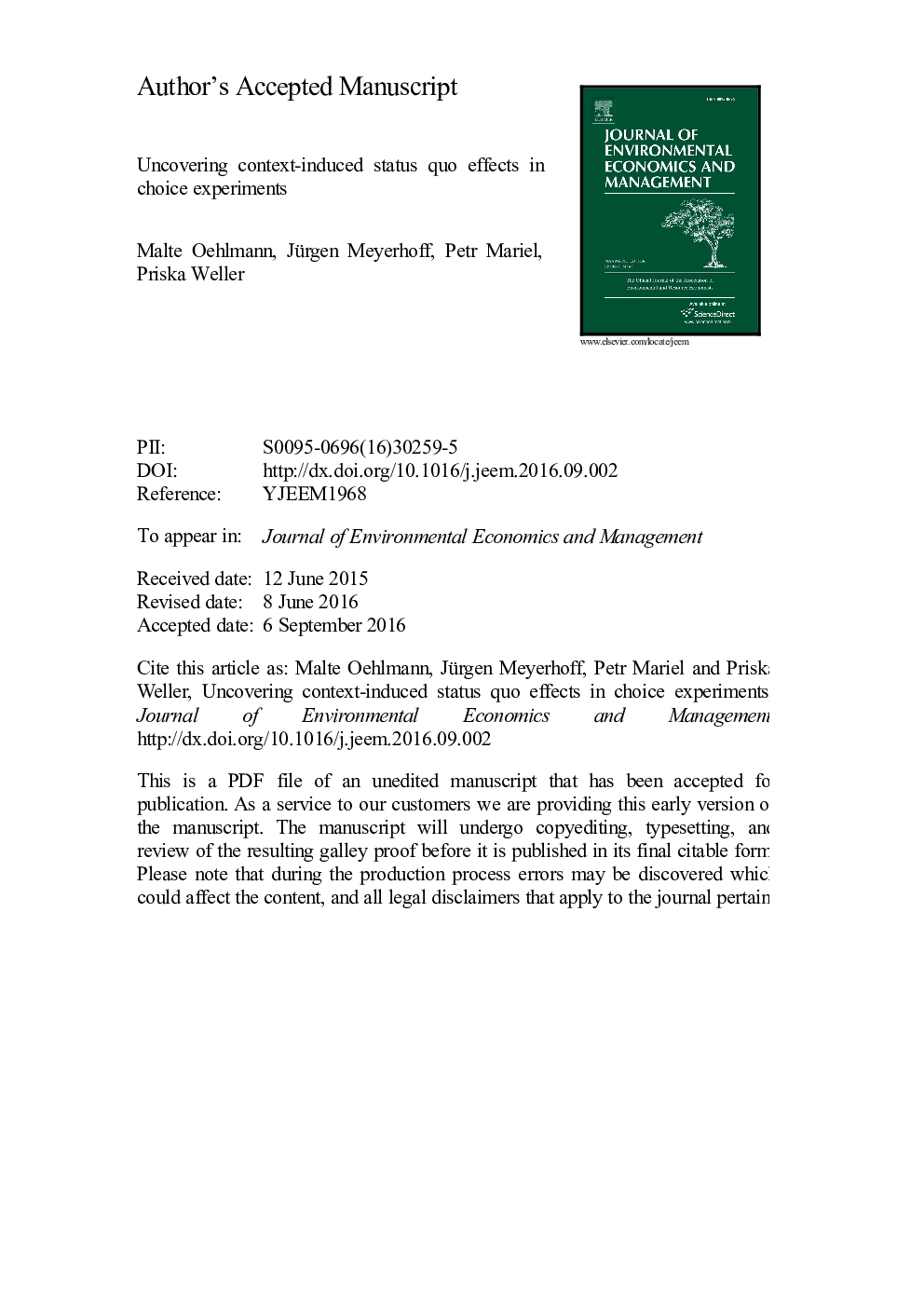| Article ID | Journal | Published Year | Pages | File Type |
|---|---|---|---|---|
| 5100442 | Journal of Environmental Economics and Management | 2017 | 47 Pages |
Abstract
In this study five design dimensions are varied systematically investigating context-induced status quo effects in choice experiments. Additionally, two structural complexity measures, entropy and the number of attribute level changes, are used to capture status quo effects from the similarity between alternatives and the number of trade-offs. A crucial finding is that the frequency of status quo choices is negatively associated with the number of alternatives indicating preference matching effects. By contrast, the probability of choosing the status quo increases with a higher number of choice tasks, a wider level range, and the similarity between alternatives. Status quo choices are further affected by the current environmental situation perceived by respondents. We also find that marginal and non-marginal welfare estimates are significantly affected by the choice design. One key finding is that the most used choice task format in environmental economics, i.e., two hypothetical and a status quo alternative, is likely to increase the propensity to choose the status quo option.
Keywords
Related Topics
Social Sciences and Humanities
Economics, Econometrics and Finance
Economics and Econometrics
Authors
Malte Oehlmann, Jürgen Meyerhoff, Petr Mariel, Priska Weller,
